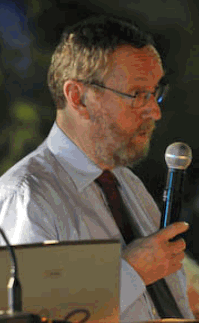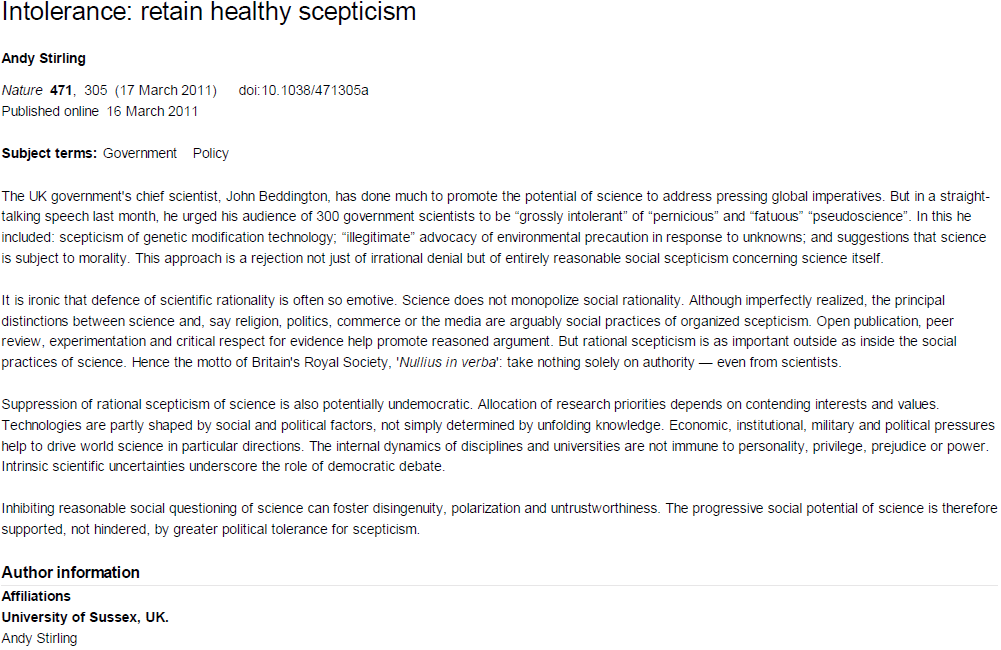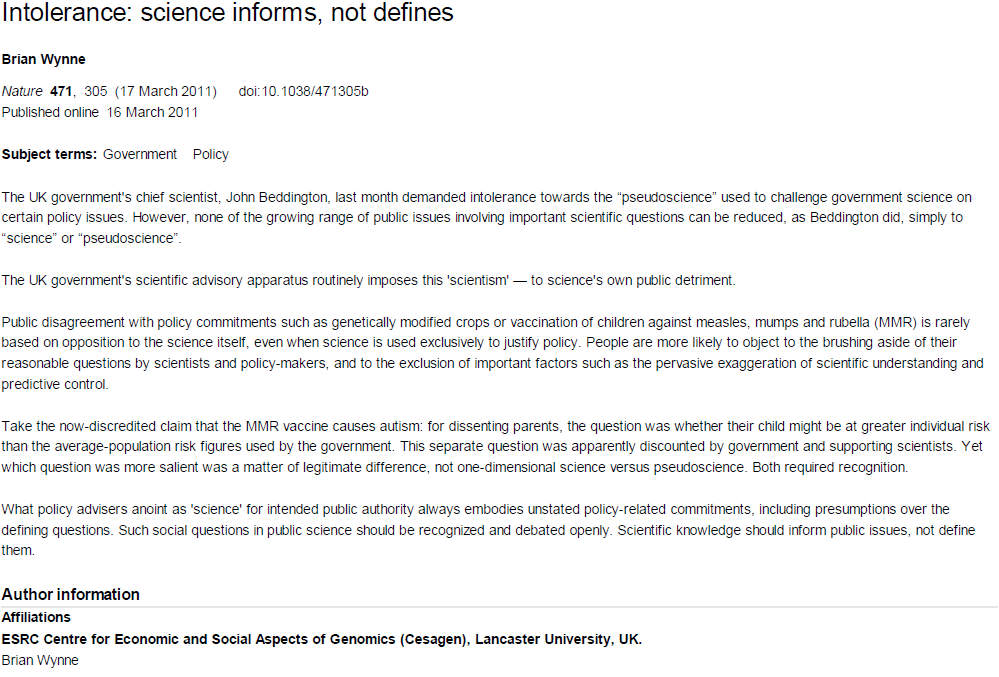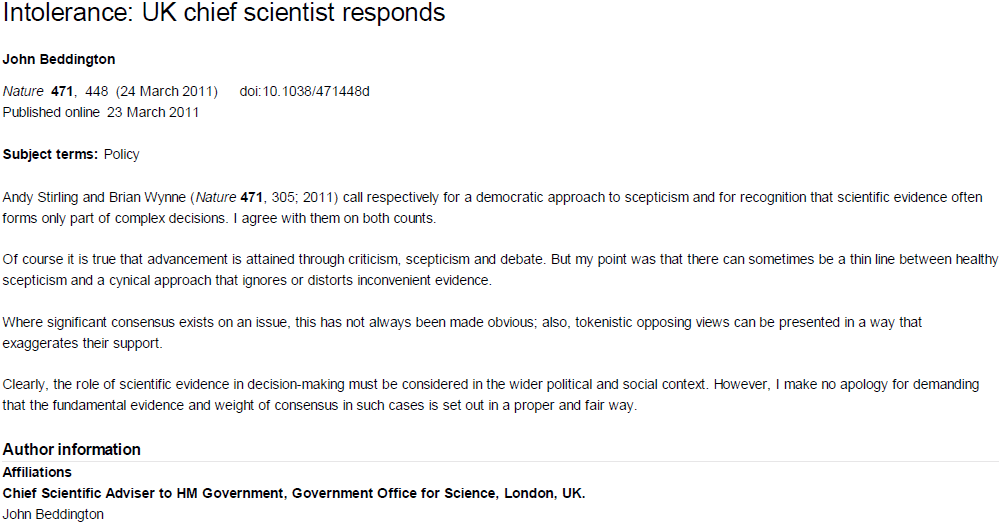|
|
|
|
|
|
|
News & Views item - March 2011 |
![]() UK Government Chief Scientific Adviser John Beddington's Warning Against
Pseudoscience Stirs Debate. (March 17, 2011)
UK Government Chief Scientific Adviser John Beddington's Warning Against
Pseudoscience Stirs Debate. (March 17, 2011)
 Just
a month before Professor Penny Sackett resigned her position as Chief Scientist
for Australia the UK Government's Chief Scientific Adviser, John Beddington,
declared war on pseudoscience urging some 300 of his fellow government
scientists, as he concluded his address to their annual conference on
February 3rd in London, to be "grossly intolerant" if science is
being misused by religious or political groups.
Just
a month before Professor Penny Sackett resigned her position as Chief Scientist
for Australia the UK Government's Chief Scientific Adviser, John Beddington,
declared war on pseudoscience urging some 300 of his fellow government
scientists, as he concluded his address to their annual conference on
February 3rd in London, to be "grossly intolerant" if science is
being misused by religious or political groups.
We are grossly intolerant, and properly so, of racism. We are grossly intolerant, and properly so, of people who [are] anti-homosexuality...We are not ó and I genuinely think we should think about how we do this ó grossly intolerant of pseudoscience, the building up of what purports to be science by the cherry-picking of the facts and the failure to use scientific evidence and the failure to use scientific method.
I really believe that... we need to recognise that this is a pernicious influence, it is an increasingly pernicious influence and we need to be thinking about how we can actually deal with it. I really would urge you to be grossly intolerant...We should not tolerate what is potentially something that can seriously undermine our ability to address important problems. There are enough difficult and important problems out there without having toÖ deal with what is politically or morally or religiously motivated nonsense.
And he was scathing about a segment of the fourth estate who treat the opinions of non-scientist commentators as being equivalent to the opinions of "properly trained, properly assessed" scientists: "The media see the discussions about really important scientific events as if itís a bloody football match. It is ridiculous."
Ben Goldacre, a science journalist and medical practitioner told John Dwyer and Laura Hood of Research Fortnight:
Society has been far too tolerant of politicians, lobbyists, and journalists wilfully misusing science, distorting evidence by cherry-picking data that suits their view, giving bogus authority to people who misrepresent the absolute basics of science, and worse. This distorted evidence has real world implications, because people need good evidence to make informed decisions on policy, health, and more. Beddington is frustrated, and rightly so: for years Iíve had journalists and politicians repeatedly try to brush my concerns on these issues under the carpet.
Now, Nature has published correspondence from Andy Stirling, University of Sussex, UK and Brian Wynne, ESRC Centre for Economic and Social Aspects of Genomics (Cesagen), Lancaster University, UK which take issue with what they perceive to be Professor Beddington's views.
__________________________________________________________________________

_________________________________________________________________________________

____________________
Added March 24, 2011
